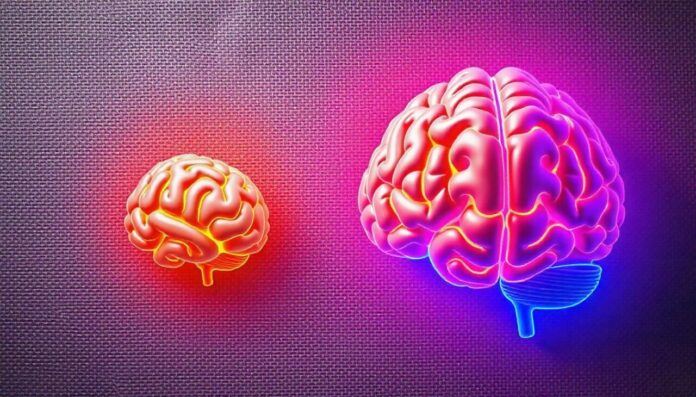
Recently, there’s been a lot of talk about the apparent decline in global IQ, especially in developed countries, with many different studies supporting this trend.
Furthermore, it seems many would agree there’s a pervasive sense that, as a civilization, we’re speeding towards an “Idiocracy“—a reference to the classic film portraying a future so intellectually deprived that people have literally forgotten their own names.
Looking at various events worldwide, and the types of videos posted on platforms like TikTok, one has to wonder: is the world truly getting dumber?
Let’s examine what recent studies reveal, then explore potential causes for an (eventual) lower-IQ world.
What Are Studies Saying?

Several studies have been conducted globally, and it appears they do indeed show a decline in IQ.
American IQ Trends

A comprehensive study examining IQ test results from nearly 400,000 American adults between 2006 and 2018 identified significant declines in various cognitive skills. The most notable decreases appeared among younger adults, particularly those aged 18 to 22, who showed an average drop of up to 2 IQ points in areas such as logical reasoning and vocabulary.
Interestingly, spatial reasoning was the only area with a minor improvement. This trend raises concerns about a potential reversal of the Flynn effect—the long-observed rise in IQ scores over generations—indicating that cognitive gains may have not only stalled but may be declining in recent years.
Norwegian Military Conscripts
In Norway, research on men entering military service has revealed a steady reduction in IQ scores among individuals born after 1975. Unlike previous assumptions that genetic factors might drive IQ changes, this study attributes the decline largely to environmental influences.
Researchers suggest that shifts in educational methods, changes in social and family dynamics, and media consumption may be contributing to reduced cognitive performance in younger generations.
Other Studies and Comparisons

Similar IQ declines have been documented in other countries, further illustrating this global trend:
- Finland: A study revealed a 2-point drop in IQ scores between 1997 and 2009, raising questions about educational and social influences on cognitive skills.
- France: Researchers recorded a more pronounced 4-point decrease from 1999 to 2009, adding to evidence of IQ declines across multiple domains.
- Denmark and the UK: Studies from these countries also highlight a downward trend in IQ scores among young people in recent decades. In the UK, the decline is particularly notable among teenagers, raising some questions over lifestyle and educational shifts affecting cognitive abilities.
So, based on different studies, we clearly have an issue, don’t we?
However, while studies show there is a problem, they can’t fully capture its scale. Observing people’s behavior around us and worldwide can provide more insight into the real impact.
Let’s first examine some behavioral patterns we’ve all noticed and then try to understand the true reasons behind the IQ decline.
Behavioral Patterns

Have you noticed more people behaving oddly on the streets? Of course, there have always been strange individuals, but in the past decade, especially in the last five years (COVID?), more people seem “absent”—to put it mildly.
This doesn’t necessarily mean it’s due to lower IQ, but there may be some correlation.
Next, we come to the “holy grail” of intelligence: social media, particularly newer platforms. Each new iteration of social media seems to bring even crazier scenarios or rather, dumber ones.
The videos on TikTok, for instance, are astounding (in a negative way). True, some are helpful and offer advice people can apply in the real world, but the majority show people doing things even more foolish than in the aforementioned “Idiocracy” movie.
People are literally acting like cats and meowing at each other, and millions watch.
Social media trends change weekly, if not daily, but they mostly seem to get dumber. Tragically, several young people have even committed suicide while participating in these trends.
Unbelievable, isn’t it?
Short Attention Spans

Now, if we consider that a large portion of the young population (especially in developed countries) spends hours on social media designed for short attention spans, it’s clear this will impact cognitive capacity and behavior.
Studies show that mindlessly scrolling through short videos for hours daily leads to various brain issues.
This brings us to another problem: today’s generation of parents also has a reduced attention span, creating a loop leading to a global IQ decline.
Modern parents spend less time with their children, and when they do, they’re often all staring at screens.
This “vicious cycle of madness” is bound to worsen over time.
Imagine the impact on a person born in 2020 who grows up and has a child of their own by 2050. The influence of technology on IQ decline will likely be even more pronounced then.
However, when we look at things objectively, the situation should be dramatically different. Most people have the entirety of human knowledge at their fingertips, 24/7.
Anyone can read a book or learn a new skill on their phone. But unfortunately, most people don’t use technology to learn—they use it for mindless scrolling.
So, let’s summarize the factors potentially contributing to the global IQ decline.
Factors Influencing Lower IQ

- Education: Standards are actually declining. One reason is excessive tolerance—schools are reluctant to give failing grades, as this may prompt angry parental confrontations. This cycle discourages students from putting in effort.
- Technology and Media: We’ve covered this extensively, but it’s worth repeating—new technologies and media are the primary contributors to lower IQ. TikTok’s impact is clear, but media in general also inhibits intelligence. Media no longer encourages critical thinking; those who think differently are quickly labeled as “conspiracy theorists.” This discourages people from exercising their minds.
- Nutrition: Scientists agree that diet significantly impacts intelligence. Today’s food is far less nutritious than it was even 10 or 20 years ago, and much of it is processed, containing additives detrimental to brain health. Long-term consumption of such food can lead to “brain fog” and potentially have lasting consequences, especially during childhood.
- Global Trends: This ties in with media and technology. Worldwide trends often focus on physical beauty over intellect. Journalism has shifted away from investigative reporting toward sensationalism, further diminishing intellectual focus.
- Lifestyle: It’s clear that lifestyle affects well-being. Poor sleep and lack of physical activity both impair brain function, contributing to lower IQ.
- Digital Hypnosis – Algorithmic Brain Drain: This also ties in with technology. Algorithms are designed to capture and hold attention, becoming frighteningly effective. By continually dragging us into algorithm-driven content, they might be steering our brains toward shallow, fast-reward behavior, instead of deep, thoughtful processing.
- Echo Chambers and Cognitive Laziness: Echo chambers narrow thinking. Constantly encountering simplified ideas may foster “low-effort thinking,” leading people to favor mental shortcuts over complex reasoning.
- AI Over-Reliance: As we increasingly rely on AI for everything from writing emails to decision-making, our brains may start outsourcing cognitive functions. If AI handles our “mental heavy lifting,” we risk losing previously sharp abilities.
- Collective Existential Anxiety: Ambient anxiety from global crises, such as wars, pandemics, and economic instability, raises cortisol levels, which negatively impacts memory and attention.
The bottom line is that our world today provides endless opportunities for intellectual growth, yet many factors seem to be holding us back.
Will this trend continue? Will people become even dumber in 2050?
Well, signs are there.
Certainly, we will become even more dependent on technology. As we discussed in our article about the World in 2050, our entire lives may be thoroughly intertwined with various technologies like virtual reality and advanced AI robots.
But hey, by then we probably won’t even mind the intensified dumbing down, as we’ll be living in a real-life Idiocracy.



























